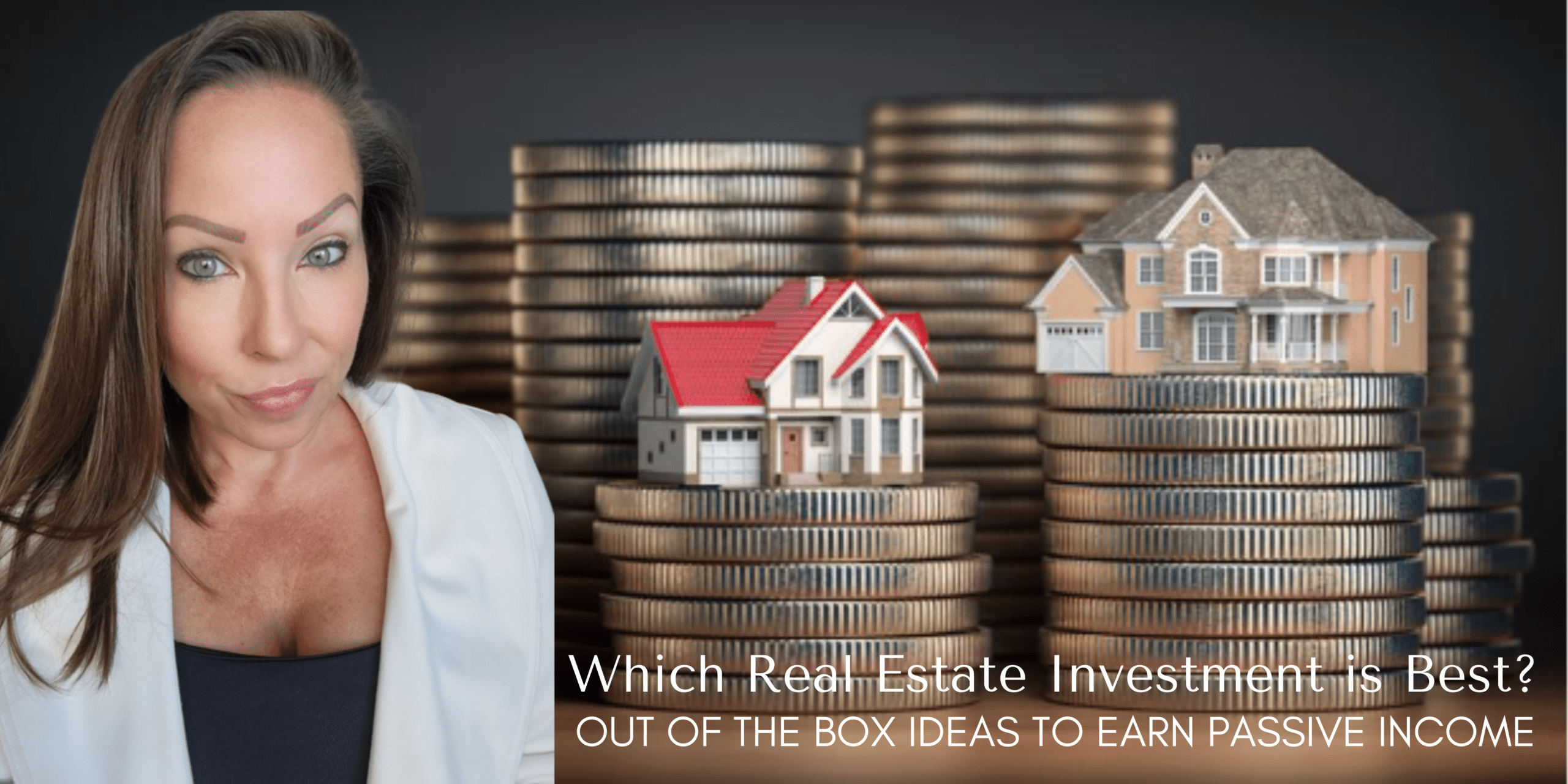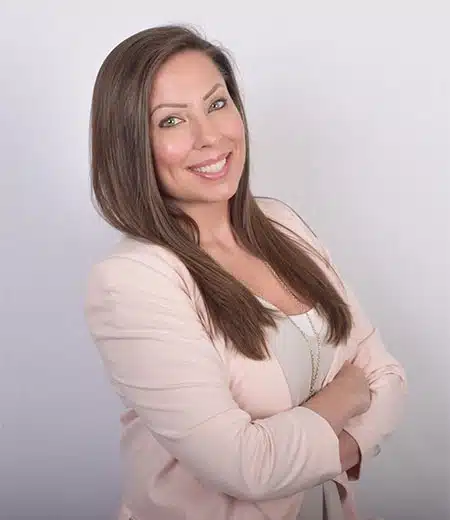
Which real estate investment is best?
Getting into real estate isn’t necessarily as easy as it used to be, at least not here in Ontario. If you’re struggling saving up a down payment for your first home, you could also be thinking that there is no way you’ll ever be able to invest in real estate either.
That’s not necessarily true.
You could be priced out of the market in Toronto or the surrounding municipalities, but there are plenty of amazing opportunities the further you go from urban centres or even in surrounding provinces.
While this may not help you solve the issue of buying your first “home”, it may help you get into the game and start saving up more quickly for it with a rental property that cash flows positively.
I ran my own brand experience agency for close to 20 years and about 10 years in, I received great advice about trying to make the money I had available work for me. I bought my first rental property in Florida in 2013 and doubled my investment 4 years later when I sold it. I used the proceeds to pay off the mortgage on my primary residence. Around the same time, I also got my primary residence re-appraised so my HELOC went up significantly.
I started wondering, “which real estate investment is best?”
I had a lot of money available on my HELOC along with some retained earnings in my business but I didn’t know what to do next.
My agency had done a little work for a real estate education company but I didn’t know much about what they did. When I saw ads for an event they were hosting in Toronto, I decided to go. Within an hour, they outlined an entire range of investment strategies.
They definitely piqued my interest. I knew they could help me answer the question about which real estate investment is best.
I signed up for a three-day course and shortly after, their membership. I’ve been a member now for four years. Here are some of the things I’ve learned.
First of all, I want to start by saying, there is no one size fits all answer to the question, “which real estate investment is best?” It really and truly depends on your personal situation.
For me, I was running a service-based business and was only making money when we were operating full steam ahead and at a significantly high volume/fast pace. I wanted to develop some other streams of passive income as well as equity.
I went to my first Investor’s Summit in June of 2018. I had some money in my holding company I wanted to purchase a property or two with. I also had lots of money available with my HELOC. As I learned in the course and at the Summit, there are plenty of avenues to park your money for a much higher rate of return than you need to borrow it for, then you can keep the difference.
Let’s take a look at the concept of rental properties.
As noted above, my first rental property was in Florida. I was able to purchase a condo overlooking a beautiful lake on a golf course about 20 minutes from the beach for just $125,000. I rented it to snowbirds and went down to check up on it a couple of times a year.
Why did I decide to invest there? Unfortunately, being self-employed, I didn’t qualify for much here in Canada, at least not close to where I live, so I had to explore other options.
While owning, maintaining and renting a property south of the border may not be ideal for some people, there are also plenty of places in northern Ontario (and even some across the Southwest) that would be more affordable. There are lots throughout the east coast, the Prairies and even into Alberta that are a fraction of what you’d have to spend close to Toronto. And, the lower the price of the property tends to translate into the possibility of better cash flow.
In addition, if the property has 6 units or more, you don’t have to personally guarantee it. This is ideal for someone like me who has always been self-employed. Even if you’re not, you’re bound to face issues financing properties with the big banks at some point in time so this is an important consideration.
Even with this point being noted, the other thing you need to think about is how you’re going to pay for the property. Whether you’re buying personally or commercially, you’ll still need a downpayment.
The fact of the matter is you don’t necessarily need your own money to do this. So, how do you do it then?
Other. People’s. Money.
I can’t say I’ve leveraged this myself but I know A LOT of people who have. In fact, one of the first investors I met has close to 100 properties that she has bought through joint ventures. That means she finds other investors to work with who put up the capital while she finds the properties to buy, in some cases fixes them up and manages them. She locates a “money partner” to finance the downpayment, and in some cases, qualify for the mortgage; and she is the “working partner”.
If this is a strategy you want to consider, it’s important to do your due diligence, work with a lawyer to draft a rock solid partnership agreement and also seek accounting advice. Yes, it will take some work, but it could be worth it if it brings you closer to your goals.
When I went to my first Investor’s Summit, I bought two pre-construction properties – one I planned to sell on assignment and the other I kept and tenanted.
While I didn’t take a loss, the preconstruction condo I bought to sell on assignment was delayed about a year and only made me about half of what I was expecting. The realtor selling them said I could expect to double my investment (turn $60,000 into $120,000 but I only made about $30,000 – or $20,000 after realtor/legal fees).
The other property I bought was a detached home with a legal basement apartment. I knew it wouldn’t have amazing cash flow, I had expected about $500-600/mth – but after it was completed, the property manager I hired to rent it out said I wouldn’t be able to rent it out for as much as I expected. As such, I was lucky to see a couple hundred a month.
I rented the property out for 3 years and sold it for almost $100,000 more than I’d bought it for. Less fees, I came close to doubling my original investment.
Now that I’ve been through all of these experiences, I’m back to wondering, “Which real estate investment is best?”
I posed this question to the group of investors I’m connected with and received a DM from an investor who said she sold all of her rental properties because she found that private lending cash flowed better. While this may be true, your principal doesn’t grow any equity along the way either. I think it’s extremely important to diversity and consider all aspects.
For me, I’d like to take the proceeds to purchase a multi-family property in the east coast. I don’t live there, but that’s where property managers come in. I’ll be able to find properties that cash flow while building equity over the long term from both active and passive appreciation.
In addition to rental properties, there are also lots of other real estate investing opportunities that you may or may not be aware of.
As noted above, one of the other investors I connected with suggested private lending. By this time, I’d already been doing a lot of private lending but only through one broker who had been referred to me. While working with him has been great, I don’t like to put “all my eggs in one basket” and wanted to diversify. For me, this means spreading the risk around.
I started setting up calls with a number of people and organizations who had been referred to me to explore other opportunities. Banks are generally not easy for real estate investors to work with. It can be tedious and time consuming, not to mention how rigid the terms are.
That’s why a lot of real estate investors will turn to private lending – and they are willing to pay a premium for it.
While interest can range, most of the borrower’s I’ve encountered will pay anywhere from 10-12% for a secured loan or mortgage to upwards of 15-20% for unsecured. If you’re paying 3-4% interest on your HELOC, like me, the difference is your profit.
The length of the terms can vary as can how agreements are structured. If this is an avenue you’d like to explore while trying to figure out which real estate investment is best then you want to conduct your due diligence. You should have a very clear understanding of what the money is required for, when payments will be made and for how long, as well as what their exit strategy is.
Depending on the amount you’re loaning, you’ll probably want to get the agreements reviewed by a lawyer as well.
Most of the private loans I’ve been a part of offer monthly returns. Sometimes these can be a mix of principal and interest or interest only. In other cases, if you’ve offered a bridge loan, then there may be not payments until the end. The money can be good, but I wouldn’t suggest taking on too many of these since you’d need to float the interest on your HELOC in the meantime. I have done some, but generally not more than a couple at a time and not for more than a couple of months per loan.
If you’re already a home owner, the equity you have is an amazing resource you can leverage to start earning passive income. If private lending isn’t for you, I know other people who have had their homes re-financed to pull out some of the equity to buy a rental property or like me, had their home reappraised to free up funds with their HELOC.
Now, if you already earn a lot of employment income, monthly returns may not be something you’re after. You’ll still be receiving a T5 or claiming your passive income, so you may not want to see additional money on your tax return at the end of the year.
If this sounds like you, there are other opportunities for you as well.
One of the other investments I moved ahead with following the Investor’s Summit was a land development project. The company isn’t actually a developer, rather they acquire the land and hire a developer. They offer 20-30% annual interest over extended periods of time such as 5-10 years. There is no interest offered in the meantime, but you can use cash or registered funds. I parked my TFSA in one of these projects and will be able to more than triple my original investment tax-free. This is money I plan to save for the long-term and will continue to ladder these investments every 4-5 years as my contribution room grows in my TFSA.
Other investor’s I’ve connected with have borrowed funds for redevelopment projects (e.g. turning a 4 unit building into an 8 unit). Since the funds are used for development, there are no returns throughout the course of construction, but your principal is returned with interest upon completion.
If you’ve been trying to decide which real estate investment is best for you, it’s important to connect with as many other investor’s as possible (they are a wealth of information and resources), do your homework, diversify and get professional advice to make sure your investments are legally secure and minimize any tax implications.
Got questions? I’d be happy to share more of my story and insights with you! I can be reached at 647.896.6584, by email at info@serenaholmesrealtor.com or by filling out this simple contact form.
For more great tips and info, make sure we’re connected on social @serenaholmesrealtor and you’ve subscribed to my YouTube channel.










